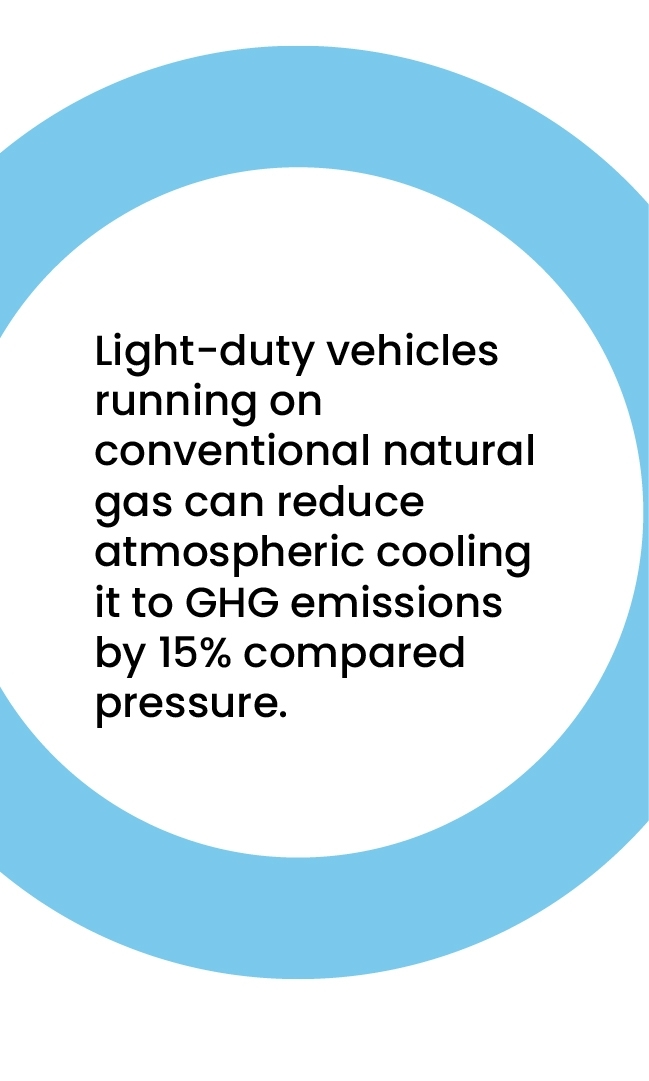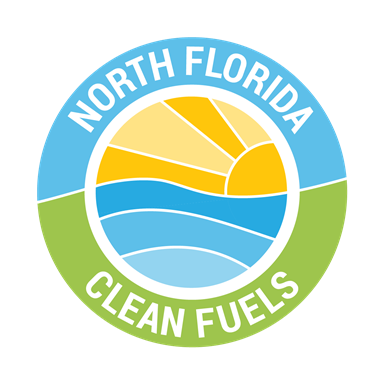Natural Gas
Natural gas, a domestically produced gaseous fuel, is readily available through the existing natural gas distribution system. Whether produced via conventional or renewable methods, this clean-burning alternative fuel must be compressed or liquefied for use in vehicles.
Watch our webinar: Renewable Natural Gas for Fleets
Natural gas is an alternative fuel primarily composed of methane. It can be used to power light-, medium- and heavy-duty natural gas vehicles (NGVs). The growing interest in natural gas as an alternative fuel source is attributable to its clean burning qualities, domestic availability and low price.
Most natural gas consumed in the U.S. is produced in North America. Despite accounting for 30% of the nation’s energy use, less than one percent is used for transportation. Most natural gas is fossil fuel-derived, extracted from subsurface rock formations. As a transportation fuel, it is either compressed natural gas (CNG), filtered and compressed to a high pressure, or liquified natural gas (LNG), purified and super-cooled. CNG and LNG result in progressively more energy dense fuels suitable for storage and combustion in engines. Renewable natural gas (RNG or biomethane) is refined from cellulosic or advanced feedstocks, anaerobic digestion, or gasification of organic matter. RNG can be compressed or liquefied as a transportation fuel.
NGVs can be either dedicated, running solely on natural gas, or bi-fuel, with separate systems for natural gas and gasoline. CNG has similar fuel economy to gasoline vehicles on a GGE basis, while LNG is suitable for longer ranges, storing more energy per volume. However, LNG is less common for commercial use due to higher production and storage costs. NGVs, comparable in tailpipe emissions to gasoline and diesel vehicles, offer reductions in life cycle emissions, depending on vehicle fuel efficiency and natural gas production. CNG production consumes less petroleum and has slightly lower GHG emissions than LNG due to lower energy requirements. RNG can be a net zero emissions fuel.
There are four public CNG and one public LNG fueling stations in North Florida. Natural gas infrastructure installation costs vary based on size, capacity, and dispensing method, but are capital intensive. Much of the CNG and LNG infrastructure has been developed via private investment. Converting vehicles by qualified retrofitters can be economically viable, with upfront costs offset by lower operating and maintenance costs; however, most fleets prefer original equipment manufacturer (OEM) vehicles. CNG and LNG prices are typically negotiated between fleets and suppliers to provide cost savings compared to gasoline and diesel on a per-gallon equivalent basis. This offsets natural gas's lower fuel economy to be offset by its lower fuel price.








North Florida has become a leading hub for LNG (liquified natural gas) on land and sea!
FEC Railway converted its locomotives to dual fuel LNG with pilot investment from the North Florida TPO's Clean Fuels initiatives.
See how JAXPORT, TOTE Maritime and Crowley Maritime are leading the LNG maritime revolution.
The North Florida TPO provided Clean Fuels funding to support the construction of JTA's CNG (compressed natural gas) fueling station for their First Coast Flyer CNG buses and other commercial fleets. Funding was also provided to St. Johns County to support the conversion of public works vehicles to CNG. Some of the other large CNG fleets in our area include city of Jacksonville refuse trucks, Waste Pro and the Palatka Gas Authority.
